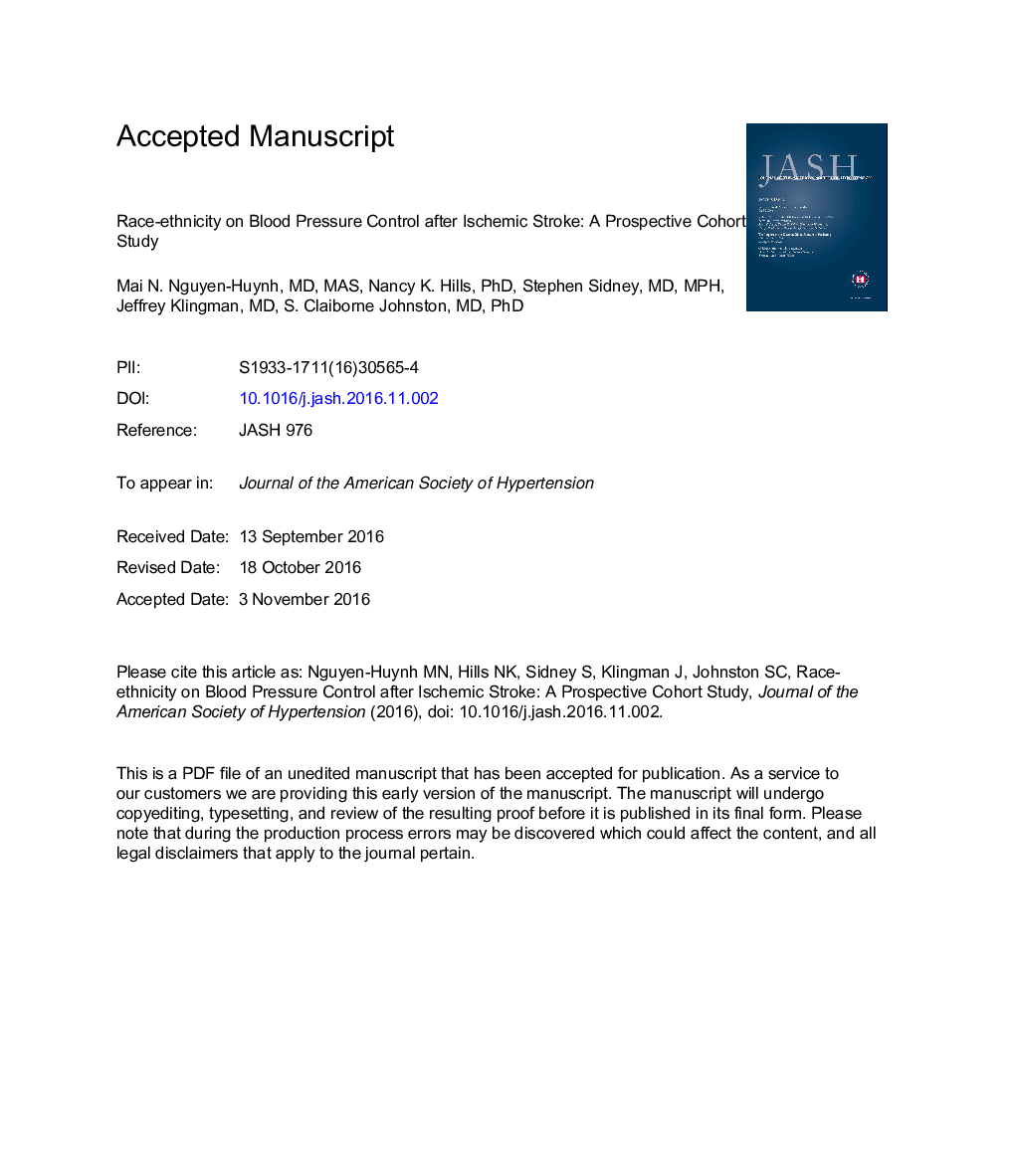| Article ID | Journal | Published Year | Pages | File Type |
|---|---|---|---|---|
| 5613650 | Journal of the American Society of Hypertension | 2017 | 16 Pages |
Abstract
Disparities in health care access and socioeconomic status (SES) have been associated with racial-ethnic differences in blood pressure (BP) control. We examined post-ischemic stroke BP in a multiethnic cohort with good health care access. We included all hypertensive patients (n = 2972) from a randomized quality improvement trial on secondary stroke prevention, conducted in 14 Kaiser Permanente hospitals in Northern California from 2004-2006 (QUISP). Average age 73.2 ± 12.2 years; 52% female, 66% non-Hispanic white, 14% African-American, 11% Asian, 8% Hispanic, and 1% other. Demographics, diagnoses, health care utilization, BP measurements, and medications were obtained as part of routine care. We used random effects logistic regression models to examine race as a predictor of blood pressure control (<140/90 mm Hg) at 6 months post-discharge, adjusted for SES, age, gender, dementia, antihypertensive therapy, and attendance at follow-up visits. At 6 months, BP was controlled in 52.7% of blacks compared to 61.4% of whites (OR = 0.63, 95% CI, 0.48-0.82, P = .001). Black race remained independently associated with poorer BP control in adjusted analysis, although blacks were as likely to attend post-discharge visits, and more likely to be on any antihypertensive therapy than whites. Greater difficulty in controlling BP and lifestyle differences may account for this difference.
Related Topics
Life Sciences
Neuroscience
Endocrine and Autonomic Systems
Authors
Mai N. MD, MAS, Nancy K. PhD, Stephen MD, MPH, Jeffrey G. MD, S. Claiborne MD, PhD,
